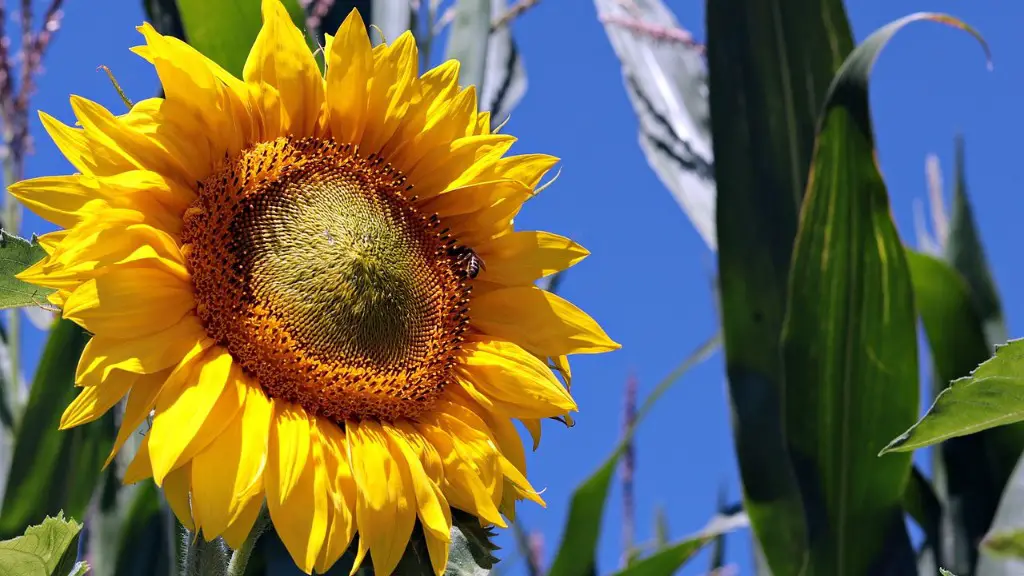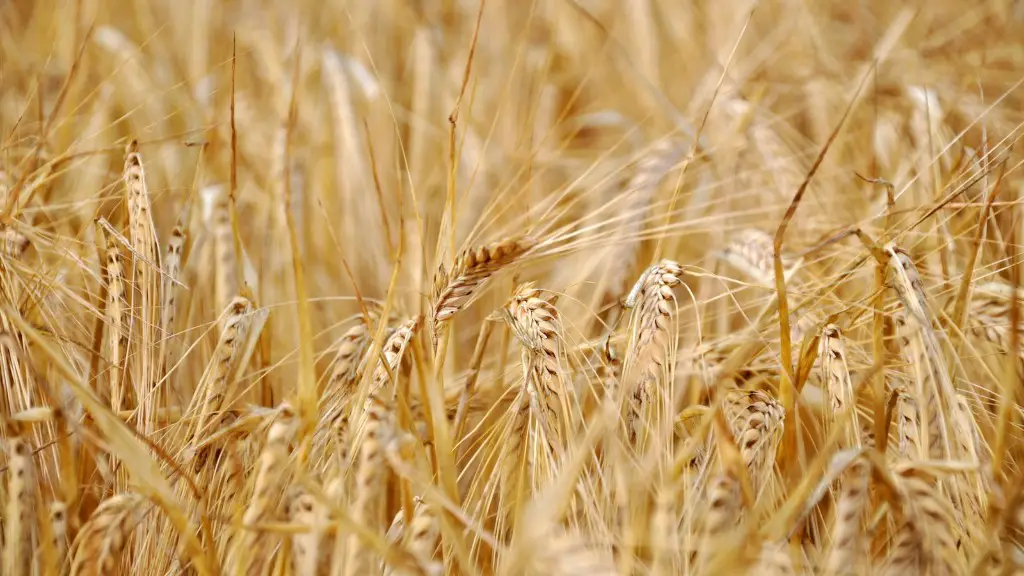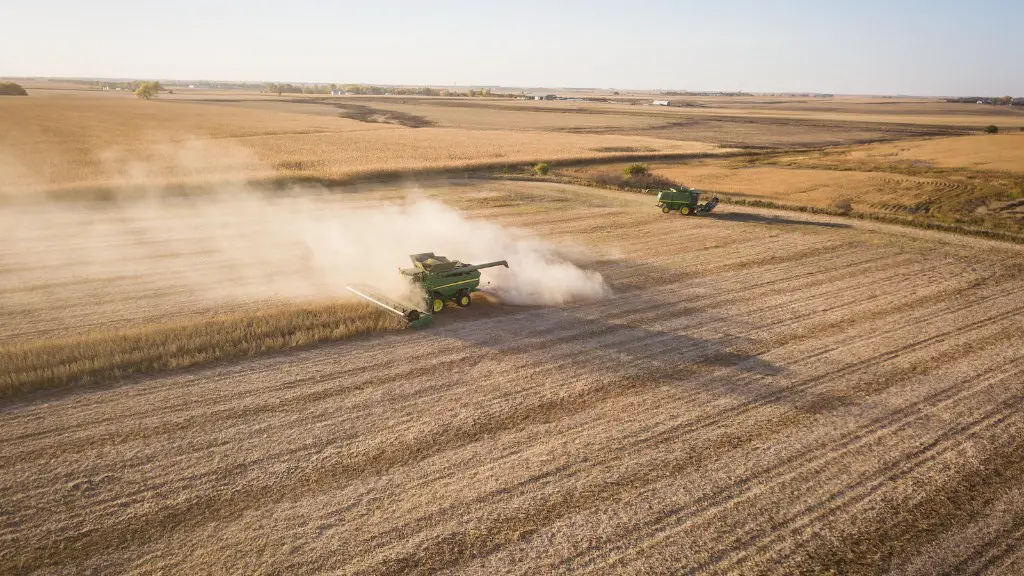Who is the Father of Modern Agriculture? Present-day agriculture has been revolutionized by the work of farmers, scientists, and innovators. But one man stands out as the founder of modern agriculture – none other than 19th-century agriculturist Justus von Liebig. His experimentations, discoveries, and theories laid the foundation for today’s agricultural practices. His influence was so vast that he was dubbed the ‘Father of Modern Agriculture’.
Liebig was born in a small Bavarian village in 1803. His academic aptitude was recognized at an early age, leading to his enrollment in a prestigious chemistry institute at the young age of 17. Liebig’s renowned achievements in the field of chemistry included producing the world’s first fertilizer which vastly increase the quality and yield of farming. He also discovered countless compounds, proving the law of the conservation of mass, and isolating several elements. Furthermore, Liebig’s publications on the scientific functioning of soils and plants earned him recognition as a leading scholar of agriculture.
Liebig’s contribution to agriculture was two-fold. He popularized the use of nitrogen-based fertilizers and demonstrated how primary elements can be replenished to the soil through manures, composts, and various other processes. Liebig also proposed the Law of Return, which stated that the nutrients used in the process of crop cultivation should be recycled back into the soil. This discovery revolutionized crop rotation and ushered in the era of modern farming methods.
According to Liebig’s “Law of the Minimum”, maximum crop yields are attained when the primary element in least supply is replenished, and he detailed the roles of several macronutrients, including nitrogen, phosphorus, and potash. Liebig’s agricultural research also resulted in the introduction of several agricultural regimes, such as the four-field system, which increases the utilization of soil nutrients, reduces labor costs, and increases crop yields. Moreover, Liebig’s extensive research on animal nutrition resulted in improved livestock farming and the modern production of meat, dairy, and eggs.
Liebig’s career was not limited to the classroom. He frequently traveled throughout rural parts of Europe and the United States, studying farming methods and advising people on how to improve them. He wrote several acclaimed books on the topic, such as Chemical Letters on Agricultural Chemistry and Agricultural Chemistry in Theory and Practice. His influence in the academic and practical fields of agriculture is evident till this day.
On the whole, Justus von Liebig is the undisputed father of modern agriculture. Revered for his pioneering contributions in the field of agricultural chemistry and animal nutrition, Liebig’s discoveries paved the way for present-day sustainable farming practices. His works revolutionized agricultural production and ushered in an era of modern farming. Without Liebig’s contributions, agriculture as we know it would not exist.
Liebig’s Experiments
As an agriculturist, Justus von Liebig conducted numerous experiments which provided [him] with immense understanding of the agricultural cycle. Liebig focused his experiments on the variables which effect crop rotation, the cycle of soil renewal, and the purpose of manure. Liebig conducted experiments to study the effect of mineral plant food, temperature, and the role of water on agricultural operations. His most famous experiment was to illustrate the impact of nitrogen-rich fertilizers on vegetable growth and crop yield.
Throughout his experiments, Liebig focused on the difference between ‘burnable’ elements and ‘non-burnable’ elements. He discovered that the former, such as nitrogen and potassium, are essential to enhancing the size and quality of crops, while some of the non-burnable elements are necessary to the growth and vibrancy of the vegetation. Liebig’s experiments revolutionized the way farmers approach their crop rotation and fertilization methods.
Liebig also studied soil acidity and alkalinity, and discovered that both have a significant effect on the health of the soil. Liebig realized that the problem of soil acidification had severe impacts on the crops, reducing their yield and vitality. To counter this, he experimented with the use of limestone to neutralize the soil. He discovered that if limestone was added in the correct quantity, it would increase the fertility of the land and greatly improve the health of the crops.
Liebig’s experiments were not limited to the field of botany. He also conducted animal experiments to better understand the nutrition habits of numerous creatures. With these findings, Liebig introduced the concept of animal husbandry, which is still widely used in the field of animal rearing and production of meat, eggs, and dairy.
In conclusion, Justus von Liebig’s experiments were groundbreaking and revolutionary. His various experiments related to animal nutrition, crop tillage, soil acidity, and the use of nitrogen based fertilizers had an immense impact upon the field of modern agriculture.
Liebig’s Contributions to Animal Husbandry
Justus von Liebig was the first scientist to bring attention to animal husbandry and its importance in agricultural practices. He was the first to recognize the importance of animal nutrition in relation to agriculture, and his innovations established a strong foundation for the modern animal husbandry industry.
Liebig believed that animal production should not be limited to the intake of plant matter, but should also include animal sources such as meat, eggs, and dairy. He promoted the idea that animals need various animal-based nutritional sources to be healthy and productive. This discovery revolutionized the way farmers approach animal rearing and production of animal products.
Liebig also theorized that crop rotation must include the rotation of different species of animals in order to increase their nutrition intake and productivity. He stressed the importance of having animals graze in multiple pastures, which would in turn increase the output of animal products such as milk, eggs, and meat.
Moreover, Liebig’s studies on the role of animal urine and manure in the process of crop rotation and soil fertility were groundbreaking. He understood that these animal-based compounds are essential for restoring nutrients to the soil. He also understood that a combination of animal and plant-based compounds would be beneficial for reestablishing soil fertility, a practice which is still used in modern agriculture.
On the whole, Justus von Liebig’s theories and practical experiments transformed the way animal husbandry is practiced. His contribution in the field of animal nutrition and crop rotation is still evident in modern agriculture, and has enabled farmers to increase the production of animal-based products.
Liebig’s Impact on Crop Rotation
Justus von Liebig was instrumental in reshaping the practice of crop rotation, which had been around for centuries. Liebig recognized that excessive crop cultivation in one field exhausts the soil’s nutrient content, leading to decreased crop yields and decreased soil fertility. He proposed the concept of crop rotation, which would enable farmers to rotate their crops from field to field in order to maintain crop fertility and replenish soil nutrients.
Liebig proposed the ‘Law of Return’, which states that the nutrients used in crop cultivation must be recycled back into the soil. He believed that this would help replenish soil fertility and increase crop yield. As a result of Liebig’s work, the four-field system was adopted, which is still used today. This system entails the rotation of four different crops, which are planted and harvested in succession in the same field, replenishing the soil and maximizing the use of crop nutrients. This system is a mainstay in modern agriculture.
What’s more, Liebig developed multiple methods to restore soil fertility. He proposed the use of nitrates as a major element in fertilizer, as well as the use of compost and manures to replenish critical soil nutrients. Liebig understood that if the soil was periodically enriched with nutrients, it would greatly improve crop yields, reduce erosion and disease, and ultimately improve food production.
In summary, Justus von Liebig’s theories revolutionized the way farmers approach crop rotation and soil fertility. His contributions have been instrumental in establishing the four-field system, which is still practiced today. Moreover, his research on the use of nitrates and organic matter for soil restoration is an integral part of present-day modern agriculture.
Liebig’s Works On Agricultural Chemistry
Justus von Liebig was renowned for his extensive works on agricultural science and chemistry. His books, such as Agricultural Chemistry in Theory and Practice and Chemical Letters on Agricultural Chemistry, outlined his theories and encouraged farmers to adopt sound agricultural practices. Liebig’s books were packed with tables of data, facts, and experiments, and they were widely read amongst academics and farmers alike.
Liebig wrote extensively about the scientific functions of soils and plants, and delved into the theoretical and practical sides of agricultural production. He emphasized the importance of mineral plant food, soil acidity and alkalinity, and listed the vital elements for enhancing crop production. These topics continue to be an integral part of agricultural science today.
Liebig also compared traditional and modern agricultural practices, contrasting methods that the farmers of previous centuries used versus the advanced techniques of the 19th century. He highlighted the importance of diversifying crops, rotating crops, and reclaiming nutrients from the soil, stressing the fact that these practices had become necessary to maintain healthy soil.
Furthermore, Liebig discussed the importance of machines in agricultural production. He praised the invention of machines such as threshers and reapers as they enabled large-scale production of crops. He also wrote about the hazards of artificial manures, warning against the excessive use of chemicals on the soil.
In conclusion, Justus von Liebig’s works in the field of agricultural sciences were highly influential. His books and publications provided an understanding of the science behind agriculture, offering innovative and practical solutions to common agricultural problems. His works are an integral part of agricultural research and education.





